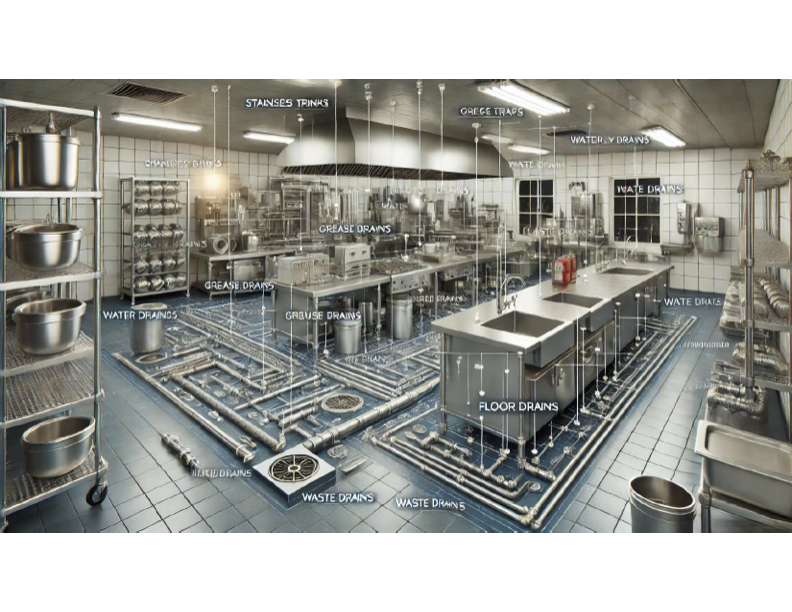When people talk about commercial kitchens, they usually focus on food, equipment, staffing, and hygiene protocols. But one crucial element often gets overlooked—drainage. It may not be glamorous, but without proper drainage, the entire operation can grind to a halt. Here’s why it matters.
1. Hygiene Starts at the Floor
In a high-pressure environment like a commercial kitchen, spills happen constantly—oils, water, food waste, cleaning chemicals. If that liquid doesn't drain properly, it pools. And pooling means bacteria, odors, and pests. Proper drainage makes cleaning more effective and keeps the space safe and sanitary.
2. Slips, Trips, and Liability
Slippery floors are one of the top causes of workplace injuries in kitchens. Good drainage reduces standing water, which means fewer accidents and fewer lawsuits. That’s not just safety—it’s smart business.
3. Equipment Protection
Expensive kitchen equipment—ovens, refrigerators, fryers—doesn’t mix well with water. Flooding or backflow caused by poor drainage can ruin equipment, cause downtime, and result in expensive repairs. Well-designed drainage protects your investment.
4. Health Code Compliance
Regulators don't mess around with drainage. Improper wastewater disposal, clogged drains, or backflow issues can get you flagged fast. In many areas, commercial kitchens are required to have grease traps, floor sinks, and backflow preventers. Skimp on drainage, and you’re flirting with shutdowns and fines.
5. Grease Management
Grease is the enemy of drainage systems. Without the right traps and pipe angles, grease builds up fast, leading to blockages and overflows. Effective drainage systems are designed to handle grease from the start, preventing costly and disgusting backups.
6. Efficiency and Workflow
Kitchen staff move fast. If they have to tiptoe around puddles or deal with clogged drains mid-service, everything slows down. Good drainage design supports smooth workflow, faster cleaning, and fewer interruptions.
Final Thoughts
Drainage isn’t just a “back of house” concern—it’s a foundation of kitchen performance. A well-planned drainage system keeps the kitchen safe, clean, compliant, and efficient. If you're designing or renovating a commercial kitchen, invest the time and money into getting drainage right. It’s not just infrastructure. It’s insurance.

